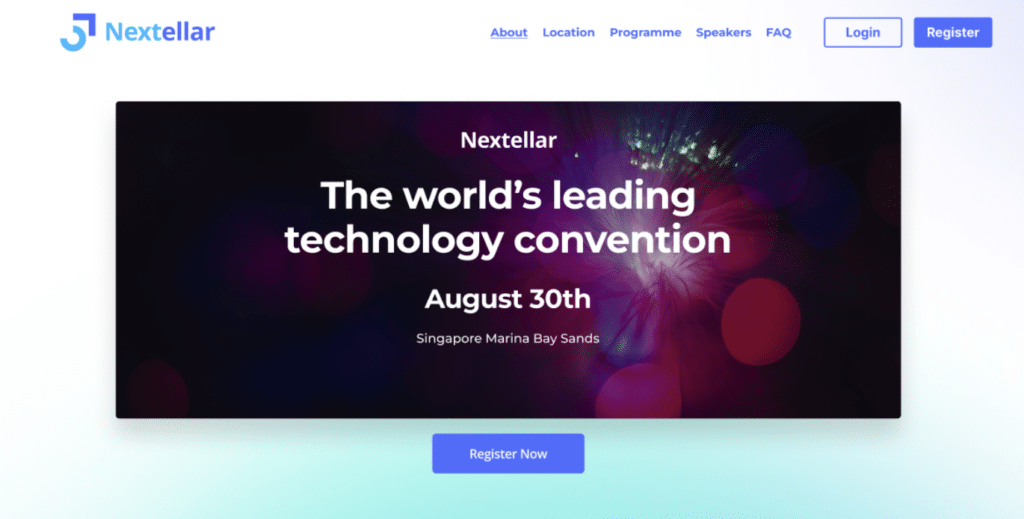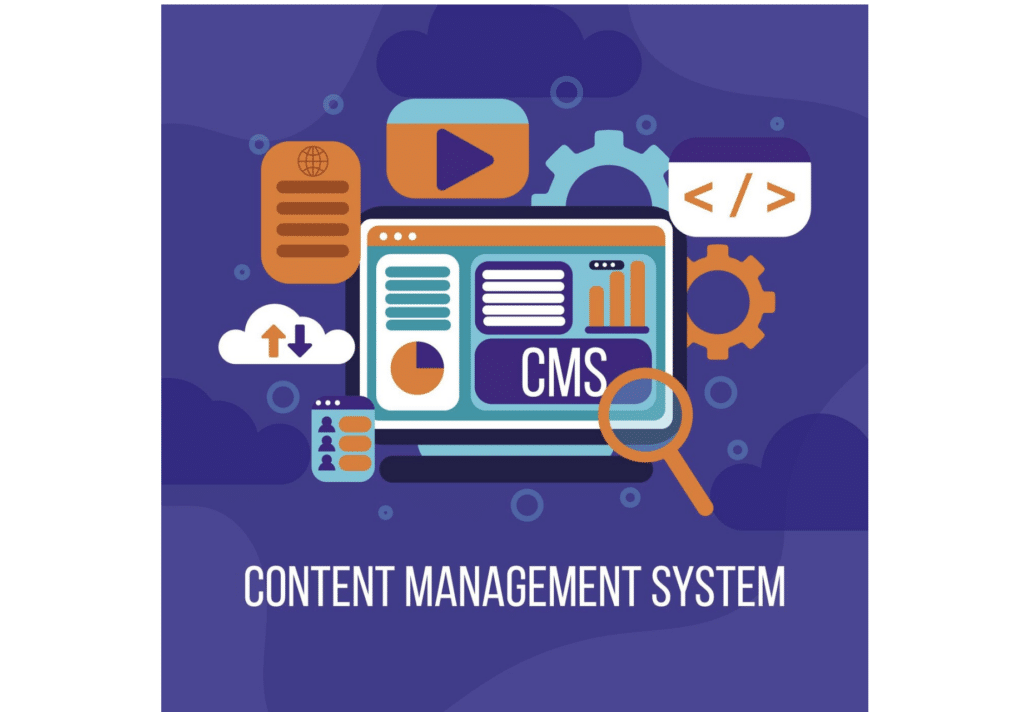In the dynamic world of event management, the digital presence of your event plays a pivotal role in its success. A well-crafted event website serves as the central hub for your event, providing potential attendees with their first impression and a persistent resource for information. It’s here where excitement builds, details are discovered, and decisions to participate are made. In this era where digital interaction often precedes physical engagement, the importance of an engaging and informative event website cannot be overstated.
As we delve into the essential strategies and tools for creating a website that captivates and informs, remember that each element, from design to content, should be carefully considered to reflect the spirit of your event and the brand it represents.

Target Audience Analysis in Event Management
Understanding your audience is a cornerstone in crafting an effective website for events. Tailoring your website to meet the specific needs and preferences of your attendees can significantly enhance their experience and interaction with your event.
- Identifying Audience Demographics: Start by gathering data on your potential attendees. This includes age, professional background, geographic location, and even technological proficiency. For instance, a tech-savvy audience might appreciate a custom event website with advanced features like AR or VR integrations, while a more traditional audience might prefer straightforward navigation and simple layouts.
- Analyzing Past Event Data: If you’ve hosted events before, analyze the data from these. Look at which pages were most visited, where attendees spent the most time, and what feedback they provided. This information can guide the design and content of your new event website.
- Incorporating Audience Preferences: Use surveys or social media polls to directly ask your potential attendees what they want to see on your event website. This direct feedback can be invaluable in creating a site that truly resonates with your audience.
- Customizing User Experience: Based on this data, customize the user experience of your event website. This might mean having a multi-lingual site for a diverse audience, ensuring mobile optimization for an audience that predominantly uses smartphones, or integrating social media for an audience that values digital interaction.
- Personalization: Advanced tools and platforms allow for personalized experiences for visitors. This could mean dynamic content that changes based on the visitor’s interests or previous interactions with your website.

Key Elements of an Engaging Event Website
Creating a website for events that captivates and informs requires attention to several key elements. Each aspect plays a vital role in ensuring your website is not only visually appealing but also functional and user-friendly.
- Clear and Compelling Event Information: The core of your event website is the information about the event itself. This includes dates, location, agenda, speaker details, and registration information. Presenting this information in a clear, concise, and attractive manner is crucial. Use engaging headlines, bullet points for easy reading, and infographics to break down complex information.
- User-Friendly Navigation: Navigation is the backbone of your website’s user experience. A well-structured navigation menu ensures that visitors can find what they are looking for easily. Consider using sticky menus that stay visible as users scroll, clear labels for different sections, and a search function for larger sites.
- Responsive Design: With the increasing use of smartphones and tablets, having a responsive design that adapts to different screen sizes is non-negotiable. A responsive custom event website ensures that all visitors have a seamless experience, regardless of the device they use.
- Effective Use of Visuals: Visual elements can make your website more engaging and help convey the atmosphere of the event. This can include high-quality images, videos, virtual tours of the venue, or interactive maps. Remember, visuals should complement the text, not overwhelm it.
- Loading Speed and Performance: The performance of your website is critical. Slow loading times can deter potential attendees. Optimize image sizes, use caching, and choose a reliable hosting service to ensure your website loads quickly and runs smoothly.
- Call-to-Action (CTA) Buttons: Effective CTA buttons guide visitors towards taking action, whether it’s registering for the event, downloading a brochure, or contacting the organizers. Make sure these are prominently placed and use persuasive language.

Interactive Event Website
Enhancing your custom event website with interactive elements can significantly boost attendee engagement and provide a more dynamic user experience. Here are some strategies to effectively integrate interactivity:
- Interactive Features for Engagement: Implement features that encourage active participation from visitors. This can include live polls about event topics, interactive Q&A sections for addressing attendee inquiries, and real-time chatbots that provide instant assistance. These elements keep visitors engaged and make the website experience more memorable.
- Streamlined Registration and RSVP Features: The registration process is often the first active interaction attendees have with your event. Integrating a smooth, user-friendly registration system is crucial. Consider embedding a registration form directly on your website, offering a seamless sign-up process. Features like auto-fill for returning visitors or the ability to save progress can enhance user convenience.
- Personalized Attendee Journeys: Use data-driven tools to offer personalized experiences for repeat visitors. For example, upon returning to the website, attendees could be greeted with suggestions based on their previous interactions, like sessions that match their interests or speakers they may want to follow.
- Interactive Schedules and Session Planners: Provide an interactive schedule or agenda on your website where attendees can view session details and create their own personalized itineraries. Features like adding sessions to personal calendars or receiving reminders can greatly enhance the attendee experience.
- Feedback and Contribution Opportunities: Encourage visitors to contribute their ideas or feedback through interactive features like comment sections, opinion polls, or forums. This not only increases engagement but also provides valuable insights for event planners.
- Gamification Elements: Incorporating gamification, such as quizzes related to the event theme or scavenger hunts that encourage exploring different parts of the website, can make the user experience more engaging and fun.
Optimizing for Search Engines (SEO) in Event Website Design
Search Engine Optimization (SEO) is a critical component for ensuring your event website reaches its intended audience. Effective SEO strategies can significantly enhance the visibility and accessibility of your website for events.
- Keyword Research and Optimization: Identify relevant keywords that potential attendees are likely to use when searching for events like yours. Incorporate these keywords strategically throughout your website content, including titles, headers, meta descriptions, and body text, without overstuffing.
- Creating Quality Content: Search engines favor websites with high-quality, relevant, and regularly updated content. Consider adding a blog section to your website where you can post articles related to your event’s theme, speaker interviews, industry trends, and more. This not only improves SEO but also adds value for visitors.
- Optimizing Website Structure and URLs: Ensure your website has a clear, logical structure that search engines can easily crawl. Simplified, descriptive URLs are more effective both for users and for SEO. A clear hierarchy and text-based navigation links can also improve the site’s searchability.
- Mobile Optimization: With the increasing use of mobile devices, having a mobile-optimized website is essential. Google’s mobile-first indexing means websites optimized for mobile have a better chance of ranking higher. Ensure your website is responsive and offers a seamless experience across all devices.
- Utilizing Alt Tags and Image Optimization: Use descriptive alt tags for all images on your website. This not only aids in SEO but also improves accessibility. Additionally, ensure images are optimized for fast loading without sacrificing quality.
- Leveraging Backlinks: Building backlinks from reputable sources can significantly boost your website’s SEO. Collaborate with industry partners, sponsors, or speakers to create link-sharing opportunities. Guest posting on relevant blogs or forums can also increase your website’s visibility.
- Local SEO for Local Events: If your event targets a local audience, optimize for local SEO. This includes listing your event on local directories and ensuring your website features location-specific keywords.

Leveraging Social Media Integration for Event Website Engagement
Integrating social media into your event website can significantly enhance both the reach and engagement of your event. Here’s how to effectively incorporate social media elements:
- Social Media Feeds and Widgets: Embedding social media feeds directly onto your website keeps content dynamic and current. Widgets showcasing real-time updates from platforms like Twitter, Instagram, or LinkedIn can create a buzz around your event and encourage visitors to engage with your social media content.
- Social Sharing Buttons: Include social sharing buttons on your website, especially on blog posts, event details, and registration pages. These buttons should allow visitors to easily share content or their registration status on their social media profiles, amplifying your event’s reach.
- Hashtag Promotion: Create a unique hashtag for your event and promote it across your website. Encourage visitors and attendees to use the hashtag when posting about the event. This not only aids in tracking conversations around your event but also fosters a sense of community.
- User-Generated Content: Encourage the creation of user-generated content by providing incentives for attendees to share their experiences on social media. This can be promoted on your website, creating authentic, peer-driven marketing.
- Integration for Live Streaming: For events that include virtual components, integrate social media platforms that offer live streaming. Showcasing live streams or recordings on your website can extend the life of your event content and reach a broader audience.
- Interactive Social Media Campaigns: Run social media campaigns that directly tie back to your website. For example, photo contests, polls, or Q&A sessions on social media that direct users back to the website for more information or registration.

Utilizing Analytics to Improve Engagement on Event Websites
Effective use of analytics is key to optimizing user experience and engagement on your event website:
- Comprehensive Analytics Setup: Implement robust tools like Google Analytics to gain insights into user behavior. Key metrics to focus on include page views, average session duration, and bounce rates. This data sheds light on how visitors interact with your website and which sections are most engaging.
- Traffic Source Analysis: Understanding where your traffic originates – be it social media, search engines, or direct links – is vital. Analyzing these sources helps identify the most effective marketing channels and guides where to allocate promotional efforts for maximum impact.
- Conversion Rate Tracking: In event websites, monitoring the conversion rate, especially how many visitors register for the event, is crucial. Use analytics to track these conversions, understand patterns, and identify elements on the website that influence these decisions, such as the placement of the registration form or the clarity of event information.
- User Behavior and Heatmap Analysis: Tools like heatmaps provide a visual representation of user interaction on your website, showing where users click and how they navigate your site. This information is invaluable in optimizing the layout, design, and content placement, ensuring that key elements like CTAs and important information are positioned where they are most likely to draw attention.
- A/B Testing for Optimization: Leverage analytics for A/B testing, experimenting with different versions of web pages, layouts, or content styles. This testing can reveal what elements resonate most with your audience, helping you to refine the user experience and increase engagement on the site.
Choosing the Right Website Building Tools for Event Management
Selecting the appropriate tools and platforms for building your event website is crucial for both functionality and user experience. Here’s how to choose the right tools:
- Assessing Website Builder Features: Evaluate website builders based on their features and capabilities. Look for platforms that offer customizable templates, user-friendly interfaces, and responsive design options. Essential features might include easy-to-use drag-and-drop interfaces, customization options to align with your event branding, and integrated functionalities like registration forms and social media plugins.
- Compatibility with Event Management Software: For streamlined event management, choose a website builder that seamlessly integrates with your event management software. This integration can facilitate data synchronization between your website and event management tools, enhancing efficiency and providing a cohesive experience for attendees.
- Scalability and Performance: Ensure the platform can handle the expected traffic to your website, especially during peak registration times. The website builder should offer reliable hosting solutions with minimal downtime and the ability to scale resources based on traffic demands.
- SEO and Marketing Tools: Consider website builders that come with built-in SEO and marketing tools. These features will help improve the visibility of your event website on search engines and aid in your digital marketing efforts.
Leveraging Content Management Systems for Dynamic Event Websites
Content Management Systems (CMS) play a crucial role in creating and maintaining dynamic websites for events. They provide the flexibility and tools necessary for updating content efficiently and keeping the website fresh and engaging:
- Dynamic Content Updates: A CMS allows for easy updates and management of website content. This is particularly important for event websites where information like schedules, speaker details, or session topics might change frequently. A CMS enables quick modifications without the need for extensive technical know-how.
- Customization and Flexibility: Many CMS platforms offer extensive customization options, allowing you to design a custom event website that aligns with your brand and event theme. From changing the layout to adding new pages, a CMS offers the flexibility to tailor your website to your specific needs.
- Integration Capabilities: A good CMS can integrate with various tools and applications used in event management, such as registration systems, email marketing software, and social media platforms. This integration ensures a seamless flow of information across all your event management tools.
- SEO Optimization: CMS platforms often come with built-in SEO tools or plugins, enabling you to optimize your website for search engines. This includes editing meta tags, optimizing content for keywords, and improving site speed – all crucial for enhancing your website’s visibility.
- Content Scheduling and Planning: Advanced CMS platforms offer content scheduling features, allowing you to plan and automate the release of new content. This is especially useful for maintaining a consistent content flow in the lead-up to your event, keeping your audience engaged and informed.

Conclusion
In building an engaging website for your event, blending strategic design with functional excellence is crucial. Gevme’s platform exemplifies this by offering user-friendly tools for creating fully functional, interactive event websites. With features like visual builders, centralized content management, and integrated SEO capabilities, Gevme empowers event professionals to build dynamic websites without needing technical skills.
Remember, your event website is more than just an information portal; it’s a reflection of your event’s identity, a crucial element in crafting successful and memorable events.








